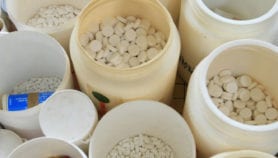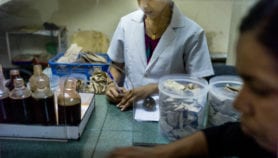By: Jia Hepeng
Send to a friend
The details you provide on this page will not be used to send unsolicited email, and will not be sold to a 3rd party. See privacy policy.
The Chinese Academy of Sciences (CAS) yesterday (26 February) released ethics guidelines for researchers in an attempt to curb a rise in scientific misconduct in the country.
CAS has also established a central scientific ethics committee, as well as committees in nearly all of its 100 institutes to investigate allegations of misconduct.
Last year, three scientists were dismissed from their Universities for falsifying their resumes or fabricating research (See Chinese professor accused of lying on CV gets fired).
The increase in cases of scientific fraud prompted the Ministry of Science and Technology to set rules for the investigation and punishment of scientific misconduct (See China sets up rules to combat scientific misconduct).
In response, CAS has issued a code of conduct establishing ethical principles for scientific activities. It defines misconduct as the falsification, fabrication or plagiarism of research or abuse of scientific research resources.
Announcing the guidelines, CAS president Lu Yongxiang said, “All scientific misconduct is the result of a misunderstanding of the true value and spirit of science”.
CAS also announced a Declaration on Scientific Concepts, calling for scientists to cherish the spirit of science in pursuing truth and innovation. It says scientists should support colleagues but also objectively question the research of others. It also encourages open collaboration.
Fang Shimin, an outspoken critic of scientific misconduct in China, said that more important than guidelines is the need to seriously investigate allegations of misconduct and punish those proven guilty.
“Without a forceful strike, any new rules could be merely useless ornaments,” Fang told SciDev.Net.












